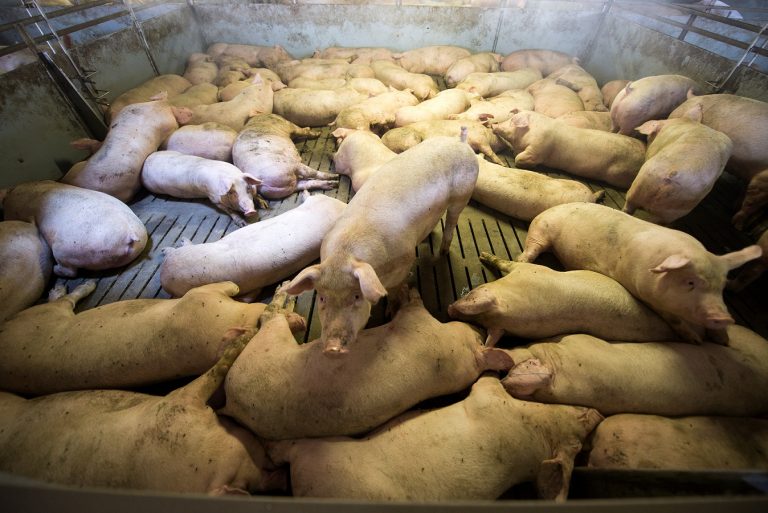
Veterinary vaccines are the most profitable part of the growing animal medicine market. Profitability in the veterinary vaccine market is fueled by the drive for food safety and the high cost of treating contagious diseases in livestock animals, increasing investment in vaccines by government agencies, and rising demand for companion pets in countries around the world.
Given the preventive focus of veterinary health care for both commercial animals and human companion animals, the veterinary vaccine market is expected to see considerable growth in revenue over the next five years,” from a reported value of $12.1 billion in 2015 to an anticipated value of $20.6 billion by 2021.1 2
According to a report published by Zion Market Research of Sarasota, FL, factors influencing the market growth include “rising maintenance cost of vaccine storage,” chronic diseases in food animals, and economic downturns that could be offset by increasing the demands for human consumption of animal products, such as milk, eggs, and meat. 1 2
The veterinary vaccine market is broken down into two main segments: vaccines for livestock and those for companion animals. The livestock market accounts for a much greater share of the veterinary vaccine market at over 62 percent, with more than 30 percent of that for porcine (pig) virus vaccines. Pet vaccines account for 38 percent of the global market, broken down into equine (horse), canine (dog) and feline (cat) vaccines. Within the pet segment, vaccines for dogs represent the most lucrative market, growing at a rate of about six percent per year.1 2
The worldwide veterinary vaccine market encompasses North America, Europe, Asia Pacific, Latin America, the Middle East and Africa. Currently, North America and Europe dominate the veterinary vaccine trade, commanding more than 68 percent of the market. The U.S. is expected to continue to account for nearly 38 percent of that market, primarily because of increasing pet ownership and the great demand for dairy products. 1 2
Pharmaceutical companies producing veterinary vaccines, which compete with each other for market share, include Bayer, Bimeda, Boehringer Ingelheim, Ceva Santé Animale, Eli Lilly (Elanco Animal Health), Heska, Merck Animal Health, Sanofi (Merial Animal Health), Virbac, and Zoetis. 1 2
References:
1 Global Veterinary Vaccine Market worth USD 12.10 Billion and CAGR 9.3% by 2021. Medgadget Nov. 25, 2016.
2 Veterinary Vaccine Market by Application (Livestock Vaccines and Companion Vaccines), by Technology Types (Attenuated Vaccines, DNA Vaccines, Inactivated Vaccines, Toxoid Vaccines and Recombinant Vaccines) – Global Industry Perspective, Comprehensive Analysis and Forecast, 2015–2021. Zion Market Research Nov. 8, 2016.













3 Responses
When we got our first cat many years ago, whom has passed since, we really thought getting vaccines were necessary. But after young stretch-lee slept for a week after and never was quite the same, we never went back. He did in fact, die an early death from diabetes. The interns at the discount clinic screwed up his shots and gave him both dog and cat vaccines. How often would you suppose that happens to humans? Question; Do the companies manufacture human and animal vaccines in same facilities? Think it’s impossible for them to accidentally mis allocate and mis label the product? Maybe if consumers got away from factory farm foods, the demand would subside. We turn to the Cornucopia Institute for food ethics education. We are exclusive to the Alfresco eggs brand. True free range and no anti biotics. Worth every penny, you can taste and see the difference. We also make a point of buying the no anti biotics bacon from costco. Same deal, it’s way better and safer to eat.
Why would you eat meat at all? We have no right to take an animal’s life. Meat is not good for us to eat.
I had a Labrador/Retriever/Samoyed mix who lived 1 month shy of 18 years. I lived in the country. He caught small game on occasions to eat but mostly was fed healthy food. He only got 1 heart worm shot in his life. He had uveitis twice. I treated it with concentrated enzymes which completely healed in a couple of hours each time. The vet was impressed telling me about 60% of their client’s dogs die from this. They never jumped at the opportunity to use this approach. With only 1 vaccine he lived a very long life and was never sick until the end of his days.